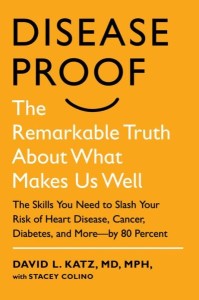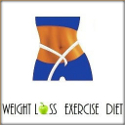-
Learning How to Decipher Food Labels Effectively
Sunday, March 30th, 2025by David Katz, M.D., Director, Yale Prevention Research Center
Choosing healthier foods and getting in the habit of reading nutrition labels can improve your health and help you lose excess pounds.
 In fact, according to a 2012 study published in Agricultural Economics, women who routinely read nutritional labels have a body mass index (BMI) that’s on average 1.5 points lower than women who don’t read labels.
In fact, according to a 2012 study published in Agricultural Economics, women who routinely read nutritional labels have a body mass index (BMI) that’s on average 1.5 points lower than women who don’t read labels. Making a habit of reading nutrition labels can also naturally improve the quality of your diet. In a study of 1,200 young adults, researchers from the University of Minnesota found that those who reported reading nutrition labels frequently were more likely to have healthier eating habits (in particular, they ate less fast food and added sugar and consumed more fiber, fruits, and vegetables), compared with less-frequent label readers.
The surprising part: Those who read nutrition labels frequently tended to have healthier eating habits, even if they didn’t believe it’s important to prepare healthy meals.
Pay Attention to the Nutrition Facts
Rule number one: Ignore the claims on the front of a food package. That real estate is owned by the manufacturer, and the wording is designed to make foods sound appealing or healthful, whether or not they actually are, in order to get you to buy them.
Instead, turn the package over and look for the Nutrition Facts panel, which is regulated by the Food and Drug Administration (FDA).
Start with the serving size and the number of servings in the package, then look at the calories per serving. Use your judgment to determine whether a single serving is realistic for you and whether it’s a reasonable calorie bargain, considering the serving size.
Next, check the fat information, including the amount of total fat, saturated fat, polyunsaturated fat, monounsaturated fat, and cholesterol, as well as the percentage daily value for each.
Your best bet is to choose items that derive no more than 30 percent of their calories from fat, with a maximum of 10 percent from saturated fat.
When it comes to sodium, it’s generally wise to avoid foods that provide more than 100 milligrams of sodium per 100-calorie serving; this will help you keep your sodium intake within the recommended limit per day.
The listings for total carbohydrate and protein are pretty straightforward, but the sugar content is a trickier matter, because it includes both naturally occurring sugar and added sugar.
Look at the ingredients list to see if sugar has been added from a source other than the food itself (say, anything other than oranges in orange juice).
Also, keep in mind: While not more than 10 percent of your daily calories should come from added sugar, no more than 25 percent of your total calories should come from any sugar. As far as fiber goes, a food should have at least 2 and preferably 3 grams of fiber per 100-calorie serving.
Ingredients List: Seek the Familiar
Next, read the ingredients list. If you can’t place the contents of the product in any part of the universe you’re familiar with – if it doesn’t come from a plant, a mineral, or an animal, for example – you may want to think twice about putting the food in your body.
Remember: Ingredients are listed in the order of their quantity within the food, so the higher an ingredient falls on the list, the more of it there is in the product.
That’s why it’s smart to steer clear of foods that have sugar (or honey, cane juice, fruit juice concentrate, syrup of any kind, or anything ending in –ose) listed among the first three ingredients.
Some pasta sauces have more sugar than chocolate sauce, and some cereals have more salt than potato chips – but there’s no good reason for all that sugar or salt to be there.
(published October 25, 2013)
 Excerpted from DISEASE-PROOF by David L. Katz, MD, MPH with Stacey Colino. Reprinted by arrangement with Hudson Street Press, a member of Penguin Group (USA) LLC, A Penguin Random House Company. Copyright © David L. Katz, MD, MPH, and Stacey Colino, 2013.
Excerpted from DISEASE-PROOF by David L. Katz, MD, MPH with Stacey Colino. Reprinted by arrangement with Hudson Street Press, a member of Penguin Group (USA) LLC, A Penguin Random House Company. Copyright © David L. Katz, MD, MPH, and Stacey Colino, 2013.
Dr. Katz is the founding director of Yale University’s Prevention Research Center. He is a board certified specialist in both Internal Medicine and Preventive Medicine/Public Health. Katz is known internationally for expertise in nutrition, weight management, and chronic disease prevention, as well as integrative care and patient-centered care models. His website is DavidKatzMD.com.


